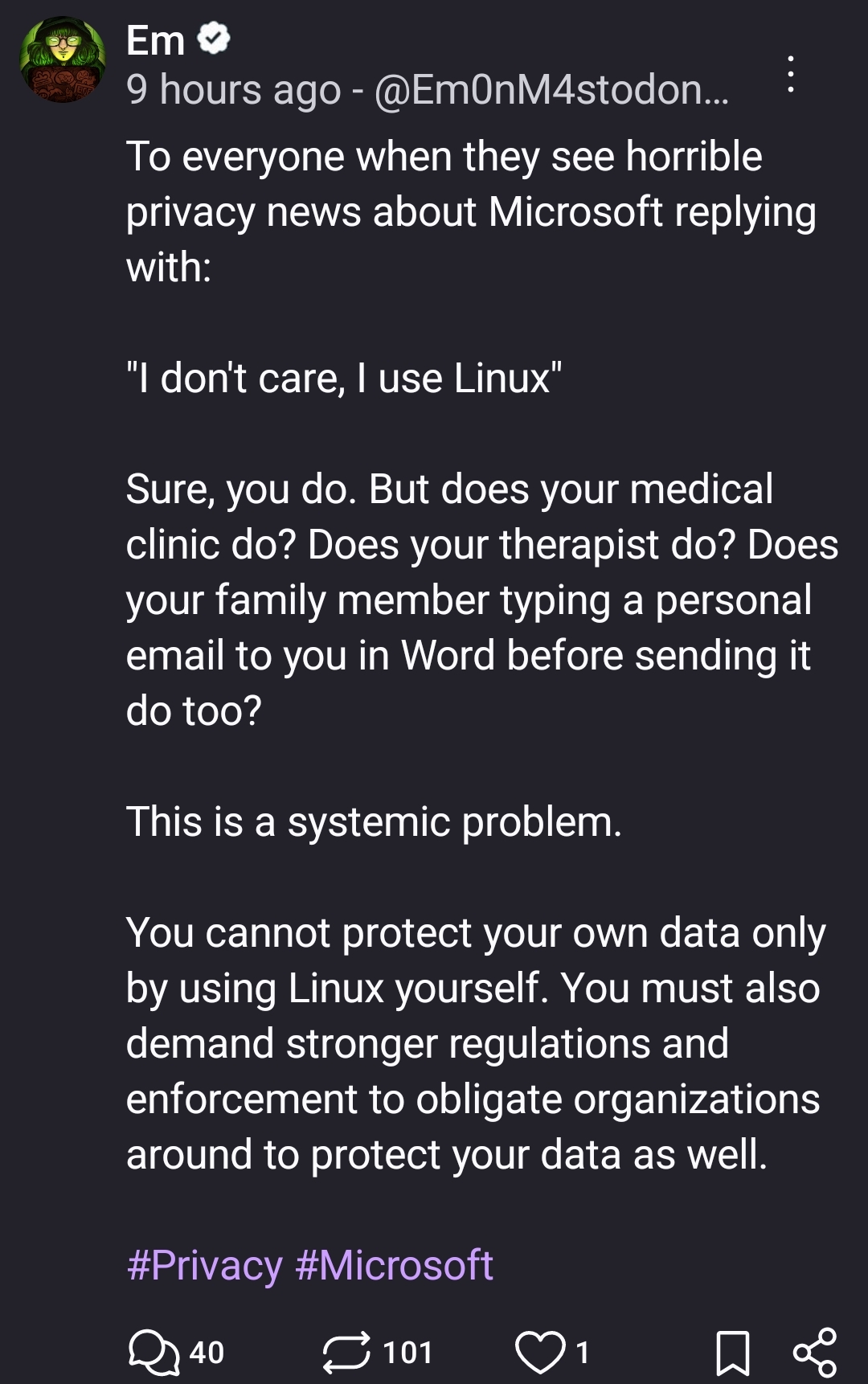this post was submitted on 25 Nov 2024
1866 points (98.6% liked)
Microblog Memes
6037 readers
2238 users here now
A place to share screenshots of Microblog posts, whether from Mastodon, tumblr, ~~Twitter~~ X, KBin, Threads or elsewhere.
Created as an evolution of White People Twitter and other tweet-capture subreddits.
Rules:
- Please put at least one word relevant to the post in the post title.
- Be nice.
- No advertising, brand promotion or guerilla marketing.
- Posters are encouraged to link to the toot or tweet etc in the description of posts.
Related communities:
founded 1 year ago
MODERATORS
you are viewing a single comment's thread
view the rest of the comments
view the rest of the comments

They might not know there are alternatives. So they likely do not ccomplain to their IT person.
Dont be a "jUsT uSe LiNuX" guy, but when you see them frustrated maybe say "hey I see you are frustrated as well and I as a patient are concerned about my medical data privacy. You know there are better and safer alternatives, maybe you could ask your IT if it would be possible to switch to Linux?"
Realistically, they can't switch because the software to use some $€1m medical device only runs on windows.
I've had the se thought as expressed in the last paragraph the other day and isn't the anwser in compatibility layer? Like can't they install and run windows medical software using WINE?
Having worked in healthcare IT. Adding more complexity will only make things harder for them. A lot of healthcare staff can barely operate the Windows PCs and applications they're used to. Change anything and they act like the sky is falling.
That opens up a legal liability for the people creating the compatibility layer. You've gone from two points of failure (the doctor and the machine) to three.
For sure it can be done but most people / companies won't want to take on that liability.